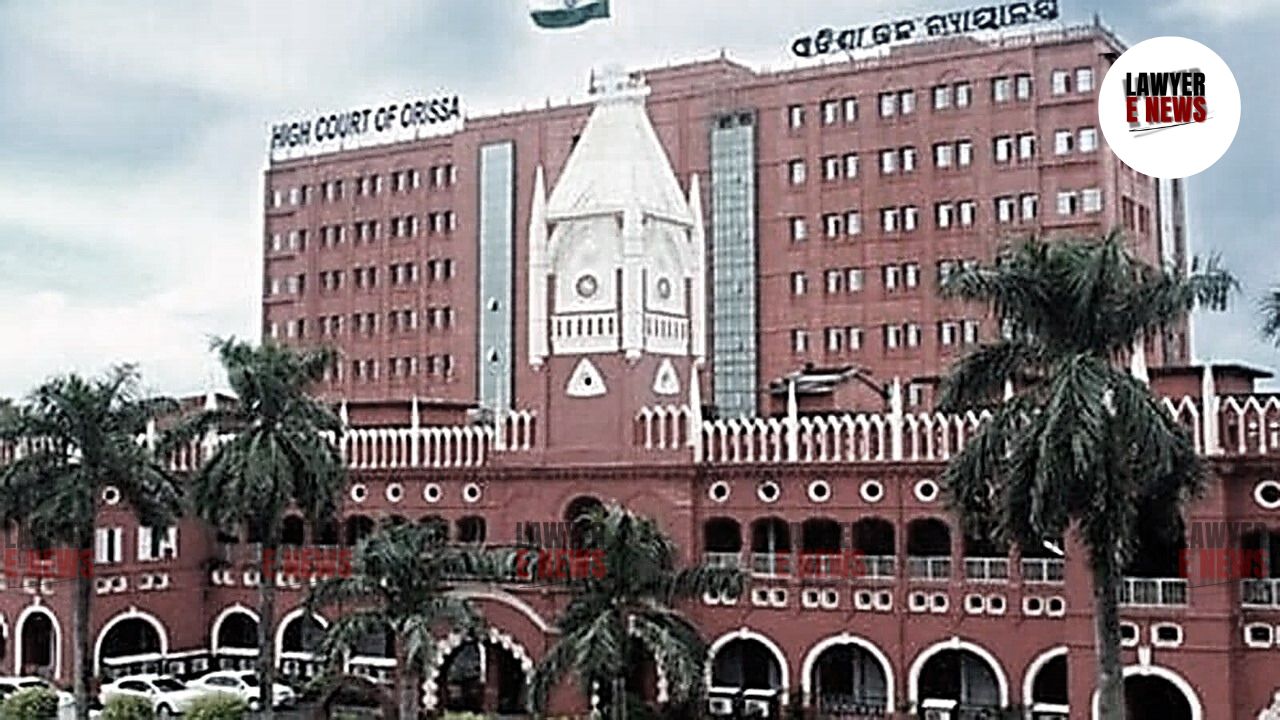-
by Admin
15 February 2026 2:36 AM



High Court of Orissa, in the case Kailash Prasad Sahoo & Ors v. Rajendra Prasad Singh & Ors (RSA No. 109 of 2010), ruled in part against a previous appellate decision on a longstanding property dispute. The judgment, delivered by Justice Sashikanta Mishra, underscored the principle of res judicata under Section 11 of the Code of Civil Procedure (CPC), stating that issues previously decided by the First Appellate Court could not be reopened. The High Court set aside the decree on certain plots but upheld findings on other disputed property, marking a significant reinforcement of procedural finality in property litigation.
This appeal arose from a series of judgments regarding a property dispute involving land in Rourkela, Orissa. The plaintiffs, successors to Shyam Narayan Singh, claimed title over specific plots based on a sale deed from 1952. They argued that after the 1964 communal riots, Defendant No. 1, who had been permitted to reside temporarily on the property, refused to vacate despite having no legal claim to the land. The plaintiffs sought eviction, damages, and a permanent injunction against the defendants.
The defendants contested these claims, asserting adverse possession and questioning the legitimacy of the plaintiffs' title. The case initially went through a trial court, which ruled in favor of the plaintiffs on some claims but rejected their request for title over certain plots. Both parties appealed, leading to a series of judgments from the Additional District and Sessions Court, Fast Track Court, Rourkela.
The trial court initially decreed in favor of the plaintiffs, affirming their title over Hal Plot No. 369/2169 but denying it for Plots No. 544 and 545. This decision was partly reversed and remanded by the First Appellate Court. The First Appellate Court eventually granted the plaintiffs title over Plots No. 544 and 545, which had previously been denied in an earlier appeal.
Application of Res Judicata: Justice Mishra emphasized that the First Appellate Court’s decision to reopen issues concerning Plots No. 544 and 545 was erroneous, as it contravened the doctrine of res judicata. The judgment noted, "The First Appellate Court could not have reopened the issue... as it would be hit by the principle of res judicata enshrined under Section 11 of C.P.C." The plaintiffs had previously appealed this issue, and it was dismissed without further challenge, rendering it final.
Confirmation of Title Over Plot No. 369/2169: The High Court affirmed the plaintiffs’ title over Plot No. 369/2169, finding no evidence to contradict the lower courts' concurrent findings. It cited established legal principles regarding concurrent factual determinations, noting that such findings can only be overturned if shown to be "perverse or against the weight of evidence."
On Appeal Procedure and Cross-Objections: The High Court addressed procedural questions raised by the plaintiffs, affirming that a single appeal could indeed cover both the main appeal and any cross-objections under Order 41, Rule 22 of the CPC, thereby streamlining the litigation process.
The High Court’s decision reflects a commitment to procedural integrity and underscores that litigants must carefully consider the finality of judgments to avoid reopening settled issues. The judgment underscores that while appellate courts can review factual findings, they must adhere to the established limits set by procedural law, particularly the res judicata principle.
Date of decision : November 7, 2024
